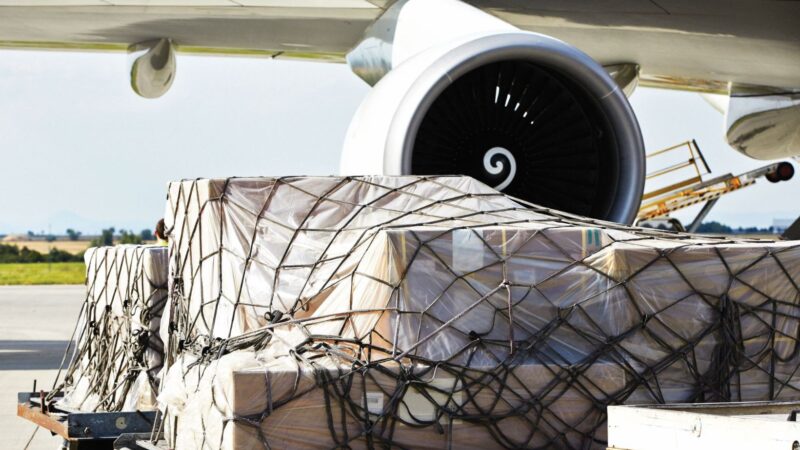For Air Cargo Management, FIATA provides insights from the Airfreight Institute Session at the 2023 FIATA World Congress.
During the recent FIATA World Congress, the Airfreight Institute Session was a platform for industry experts to share key updates and insights into the evolving world of airfreight operations.
The meeting kicked off with the report of the AFI activities, including FIATA’s comprehensive review of the IATA Cargo Handling Manual, which now aims to include the freight forwarder perspectives to ensure high-level air freight operational standards, as well as FIATA’s continuous work towards a Global Air Cargo Programme to benefit all regions around the world.
The session featured a distinguished panel of experts representing various sectors of the air cargo industry, including freight forwarders, ground handlers, air carriers and airport authorities. These industry leaders came together to discuss the challenges and opportunities in the air cargo sector.
Digital challenges: ensuring data quality and visibility
One of the hot topics discussed was the importance of ensuring data quality and standardisation in the air freight industry.
This topic has been high on FIATA’s agenda for some time, and Andrea Tang, AFI manager at FIATA, highlighted FIATA’s involvement with the Cargo iQ board, and its role in representing the freight forwarder’s voice in discussions surrounding digitalisation in air freight. In an era where digital transformation is a pressing concern for all stakeholders, FIATA aims to ensure that forwarders have a seat at the table.
In a time of increased need for data exchange in the supply chain and regulatory advanced cargo information requirements, the need for freight forwarders and carriers to align their data practices is crucial. This was underlined by Rutger-Jan Pegels, director of performance management at KLM, who noted that disparities in data quality can impede the smooth operation of the supply chain. He noted that “speaking in different languages” in terms of unharmonised, unstandardised data will cause issues in the industry.
Real-time data exchange in air cargo operations
Noting changing customer demands, David Bellon, vice president business development at DHL Global Forwarding underscored the importance of order status visibility. He urged the industry to provide real-time tracking and data exchange capabilities, pointing out that consumers no longer have the patience to wait for information.
He said: “Our shippers and consignees are the ones evaluating services. In my opinion, as a forwarder of 28 years, we are not providing the service that our customers need to have now, that customers can get from Amazon. It’s all about visibility and we get the visibility through data exchange, Master Operating Plans (MOP) and platforms like Cargo iQ.”
One of the central challenges faced by ground handlers is the misalignment in data between airlines and freight forwarders, according Bert Selis, vice president business development at Worldwide Flight Services (WFS), leading to potential confusion and inefficiency. Selis shared the challenges this raises for ground handlers, particularly when it is time to load the aircraft. Ground handlers play a pivotal role in the air cargo supply chain, providing services to airlines that ensure the smooth movement of cargo.
Meanwhile, freight forwarders operate based on agreements that establish specific time slots for various tasks, such as cargo readiness. These agreements, for example, might stipulate that cargo should be ready within six hours. However, the reality is that it can often take up to 12 hours, creating a significant misalignment between expectations and actual performance.
To address this challenge and enhance operational efficiency, Selis emphasised the need for real-time data exchange platforms. These platforms would enable stakeholders to access and share up-to-the-minute information, facilitating smoother operations and minimising discrepancies.
The panel also touched on the concept of cargo communities. DHL’s Bellon highlighted the use of such at Brussels Airport. This approach has fostered engagement among global carrier ground handling agents and serves as a blueprint for harmonising operations in the industry. Central investment in data exchange software has been instrumental in initiating a digital transformation journey. However, it is acknowledged that while there is alignment on a global digital path, the pace of adoption remains a concern. As the industry races toward digitalisation, the need for accelerated progress becomes evident.
Enhanced dialogue and harmonisation crucial
Barbara Hiebendahl, global chief operating officer from ECX Global Logistics, shared an interesting perspective from the US, where competition has often been a catalyst for dialogue and innovation, particularly within the maritime sector.
The shift of consumers towards giants like Amazon has created a competitive landscape for forwarding companies. This competition not only forces companies to evolve but also drives them to enhance their services and digital capabilities. It was concluded by the panel that digital technology does solve problems of communication between stakeholders, but that it also poses problems of its own, so enhanced dialogue is “the only way forward”.
Meanwhile, Dawit Woubishet, FIATA’s AFI chair shared: “When it comes to Africa, there are a lot of additional challenges going on as well as the ones mentioned, for example a lack of agreements between African nations, and growing competition on air freight from global sea freight players.” He noted the need to have robust air cargo systems in place, with harmonisation across territories.
The dialogue will continue at the 2024 FIATA HQ Meeting in Geneva, 22-26 April. Stay tuned to FIATA news for upcoming updates!
This feature was first published in Air Cargo Management – November/December 2023. To read the magazine in full, click here.

